Experts Say This One Skill Can Rewire Your Child’s Brain for Focus, Confidence, and Long-Term Success and It’s Not What You Think
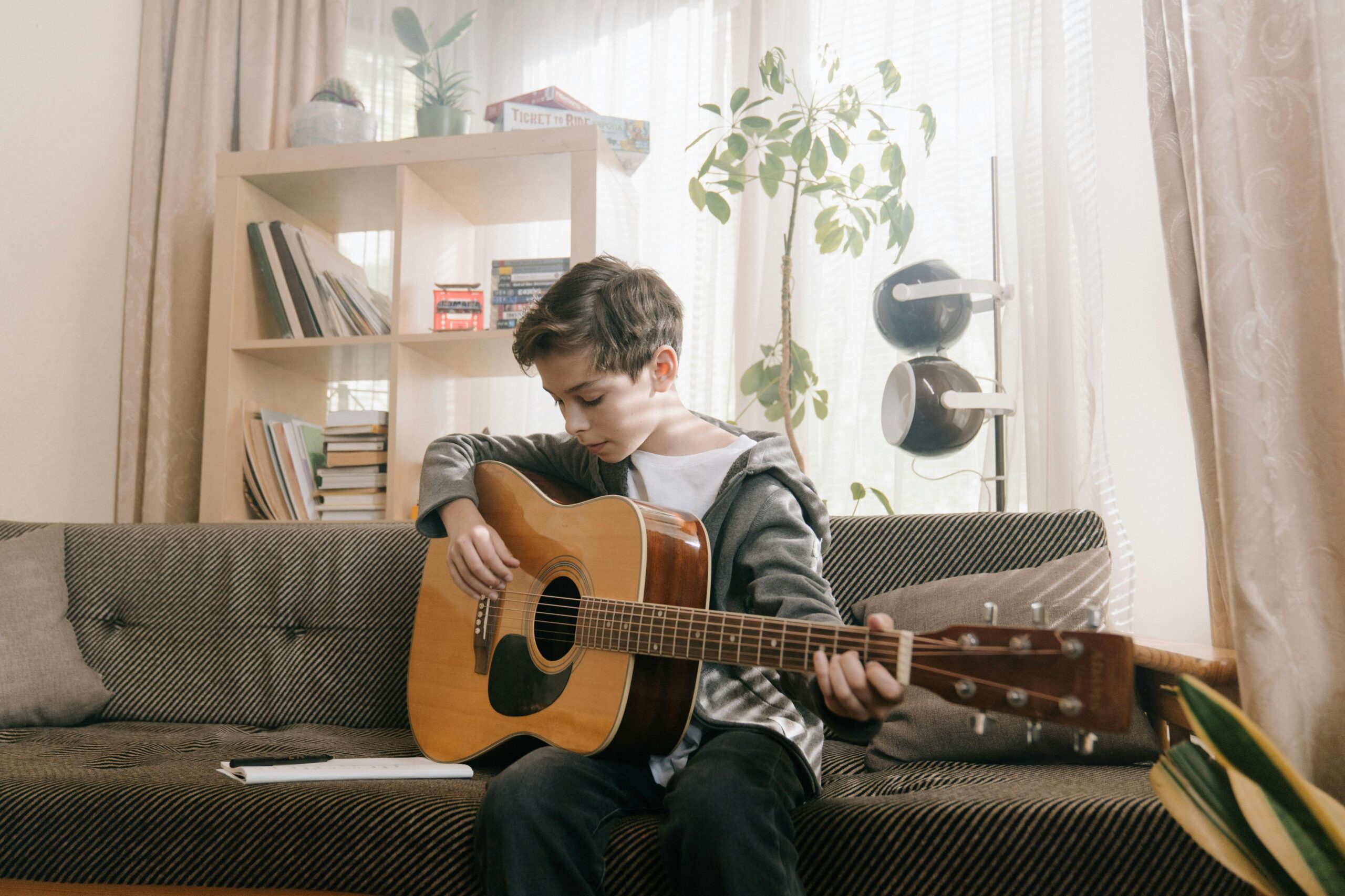
If you could give your child one skill that sharpened their mind, boosted their confidence, and set them up for success in nearly everything they do, what would you choose? Most parents might say math, reading, or even coding. But experts are pointing to something far less obvious something that’s been hiding in plain sight for centuries.
That skill is learning to play a musical instrument.
Neuroscientists call it a “full-brain workout.” Every note activates motor skills, memory, attention, creativity, and emotion, building neural connections that textbooks alone could never spark. Studies show that children who play an instrument often score higher on IQ tests, excel in language and math, and carry sharper focus into every corner of life. But the benefits don’t stop at academics. Music shapes character. It teaches discipline, resilience, and the rare ability to turn frustration into mastery.
Think of it this way: when a child learns an instrument, they’re not just practicing scales they’re training their brain to embrace challenge, to manage time, to collaborate, and to create. And those are the very skills that prepare them not just to succeed, but to thrive in a world that demands innovation and emotional intelligence as much as knowledge.
Why Music is a Whole-Brain Workout
Most activities strengthen one part of the brain at a time solving equations sharpens logic, reading builds language, sports refine motor coordination. But music is different. When a child picks up an instrument, it’s as if the entire brain lights up, firing on every cylinder at once.
A Penn Medicine study revealed that playing an instrument engages nearly every major region of the central nervous system. It demands precision from the hands and fingers, focus from the prefrontal cortex, memory from the hippocampus, and emotional depth from the limbic system. In one practice session, a child is reading symbols, processing rhythm, controlling fine motor movements, and expressing feeling all at the same time. Neuroscientists call this neuroplasticity in action: the brain adapting, growing, and creating new pathways that strengthen learning across the board.
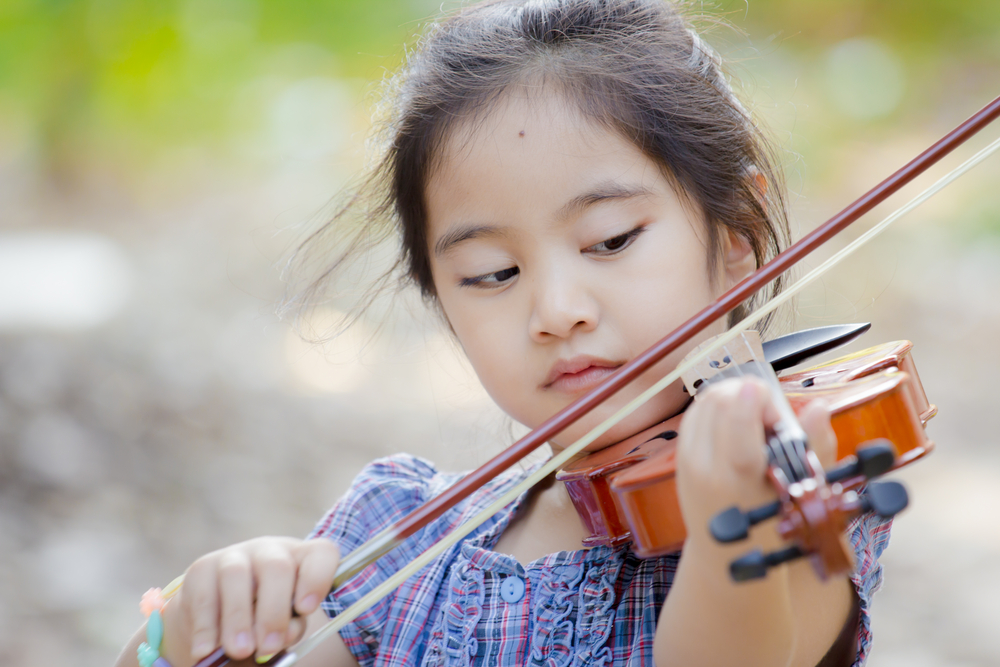
Think of it as cross-training for the mind. Just as an athlete builds endurance by working multiple muscle groups, music strengthens multiple cognitive systems simultaneously. This is why children who learn an instrument often find math easier (thanks to rhythm and pattern recognition), language richer (thanks to improved auditory processing), and concentration sharper (thanks to sustained practice and multitasking).
And it isn’t only about brainpower. The act of playing music also cultivates what scientists call “executive function”—the ability to plan, focus, switch between tasks, and stay motivated in the face of challenge. These are the same skills that set high achievers apart, whether in the classroom, the workplace, or life itself.
The Cognitive and Academic Benefits

For years, parents have searched for ways to give their children an academic edge. Extra math drills, vocabulary lists, and tutoring often come to mind. Yet, what many don’t realize is that music lessons may accomplish the same goal and often more effectively by strengthening the very brain systems that learning depends on.
Sharper memory and concentration.
Learning to play an instrument exercises working memory the ability to hold and manipulate information in the short term. When a child remembers finger positions on the piano while reading notes and keeping time, they’re building the same mental muscle that helps them solve math problems or follow multi-step instructions in class. Research consistently shows that children who study music demonstrate stronger recall, whether it’s facts for a test or sequences in reading comprehension.
A natural boost in math and language.
Music is built on patterns rhythms, beats, intervals that mirror the structures of mathematics. When a child learns rhythm, they’re also practicing fractions and ratios in a way that feels intuitive rather than forced. Similarly, musical training enhances auditory processing, allowing children to detect subtle differences in sounds. This skill directly supports language development, making it easier to grasp new words, learn additional languages, and improve reading fluency.
Attention to detail and sustained focus.
Playing an instrument requires noticing tiny differences whether a note is sharp or flat, a rhythm slightly off, or a phrase that needs more expression. This habit of precision doesn’t stay in the practice room. It spills into academics, helping children pay closer attention to instructions, spot mistakes in their homework, and persist through challenging material.
Stronger overall academic performance.
A growing body of research shows that children who participate in music education often perform better in core subjects than their peers. The reason isn’t that music replaces math or reading it’s that it builds the cognitive foundation upon which all these subjects rest. In other words, when children strengthen their brains through music, every area of learning benefits.
For parents, this means music lessons are more than an extracurricular activity. They’re an investment in the skills that allow children not only to succeed in school but to carry those abilities into every arena of life.
Emotional Growth and Confidence
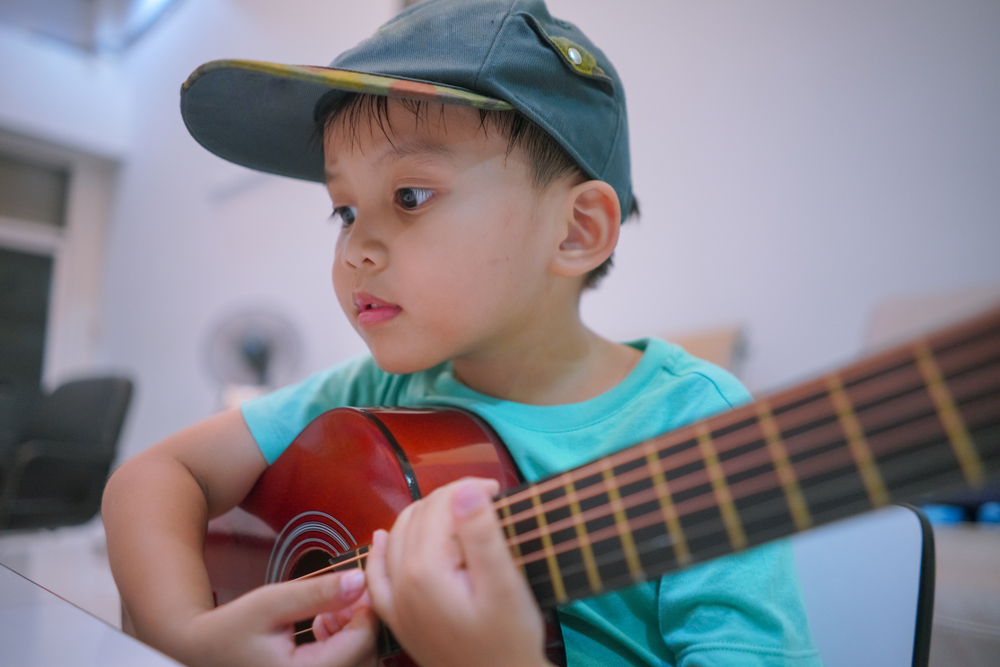
Academics may open doors, but it’s emotional intelligence that helps a child walk through them with grace and confidence. Music is one of the rare disciplines that shapes both.
Facing discomfort, building resilience.
Every child eventually reaches the part of practice they’d rather skip the tricky passage, the stubborn chord, the rhythm that feels impossible. But music leaves no shortcuts. To move forward, they must lean into the discomfort until failure turns into fluency. This simple but profound lesson that struggle is not a dead end but the path itself becomes a cornerstone of resilience. Children who learn to persevere through difficult music are better equipped to persevere through life’s setbacks.
Learning to design emotions.
Music isn’t just sound it’s emotion sculpted into rhythm and melody. A child who sits at the piano or picks up a guitar is not only expressing how they feel; they’re discovering that emotions can be guided, shaped, and transformed. Nervous before a test? A favorite song calms the mind. Frustrated after a hard day? Playing releases the tension. This ability to regulate emotions, rather than be ruled by them, is one of the most powerful skills a child can carry into adulthood.
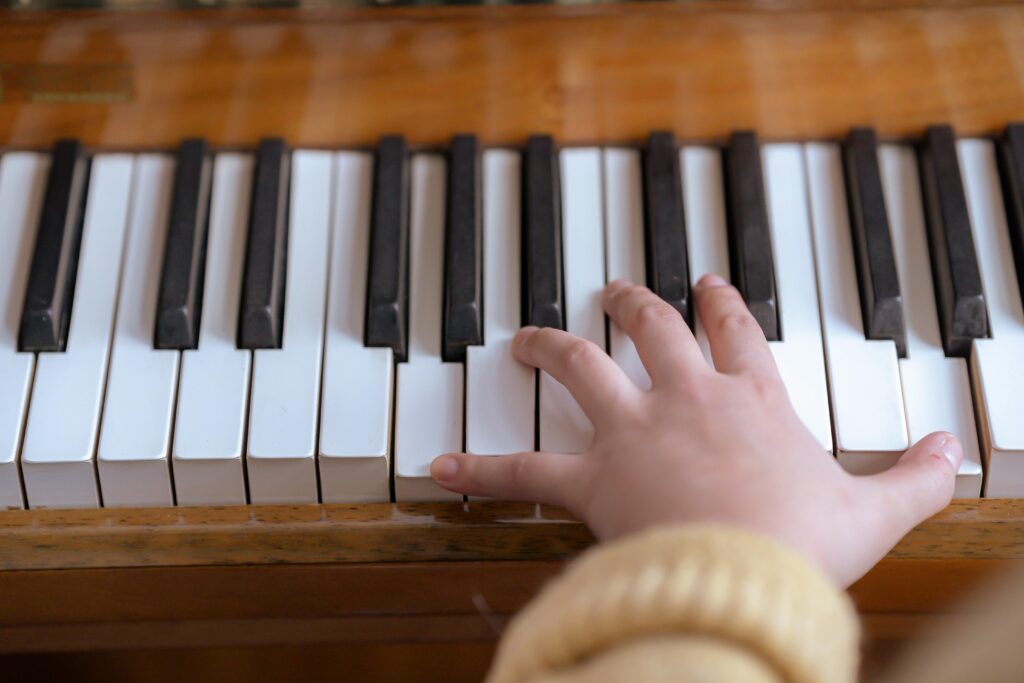
Confidence through performance.
Few things build confidence like standing in front of others, sharing something you’ve worked hard to create. Performing music whether in a school concert, for family, or even just with friends teaches children that their voice matters. It’s not about perfection; it’s about presence. Each performance becomes a rehearsal for life, preparing them to speak up in class, present ideas at work, or share their truth with the world.
Empathy and connection.
Music also opens the heart outward. Playing in a band, orchestra, or choir requires listening as much as leading. Children learn to blend, to harmonize, to carry others when needed, and to be carried themselves. This fosters empathy the understanding that growth isn’t just an individual pursuit but something shared and magnified in community.
In these ways, music nurtures more than a child’s brain. It strengthens their spirit, teaching them to face fear with courage, channel their emotions with wisdom, and stand before the world with quiet confidence.
Life Skills Beyond the Classroom
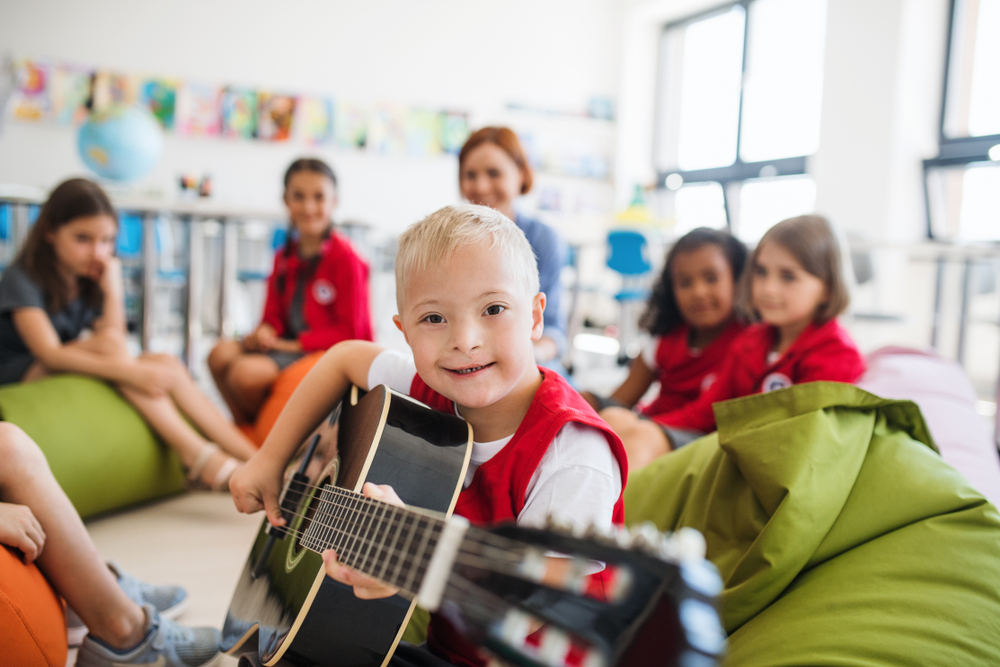
The beauty of music is that its lessons rarely stay confined to the practice room. What begins as scales and songs gradually transforms into life skills that shape who a child becomes far beyond academics.
Discipline and time management.
An instrument won’t play itself. To grow, children must return to it daily, even when they don’t feel like it. This consistency teaches discipline the same kind of discipline required to meet deadlines, prepare for exams, or manage future careers. Structured practice routines also instill time management, showing children how to break large goals into daily, achievable steps.
Turning setbacks into creativity.
Every musician knows the frustration of being “stuck.” Fingers won’t stretch, rhythms don’t line up, the song just won’t sound right. But music offers a profound alternative to giving up: improvisation. A child learns that when the old map doesn’t work, they can draw a new one. This mindset—innovation born from obstacles becomes invaluable in a world that constantly demands new solutions.
Boredom as feedback.
In music, boredom isn’t a flaw; it’s a signal. It asks the player, What are you working toward? Musicians learn to set meaningful goals, turning routine into purpose. Applied outside of music, this skill transforms “dull” tasks into stepping stones, helping children stay engaged in school, work, and relationships by always asking: Where is this leading me?
Rising standards and self-expectation.
Once a child experiences the difference between playing something “okay” and playing it well, mediocrity becomes unacceptable. Not from perfectionism, but from respect for what they know is possible. This rising standard shapes how they approach everything from writing an essay to leading a team project pushing them to bring their best, not just their minimum.
Collaboration and contribution.
When children play for others, whether in a group or solo performance, they discover that their effort isn’t just for themselves. Music is about connection about moving someone else, saying something without words. This habit of creating for others prepares children to contribute meaningfully in any field, turning personal achievement into shared impact.
In this way, the instrument becomes a teacher of life itself discipline, resilience, creativity, empathy, and excellence. Qualities that no test score can measure, but that define success in every arena.
How Parents Can Nurture the Musical Journey
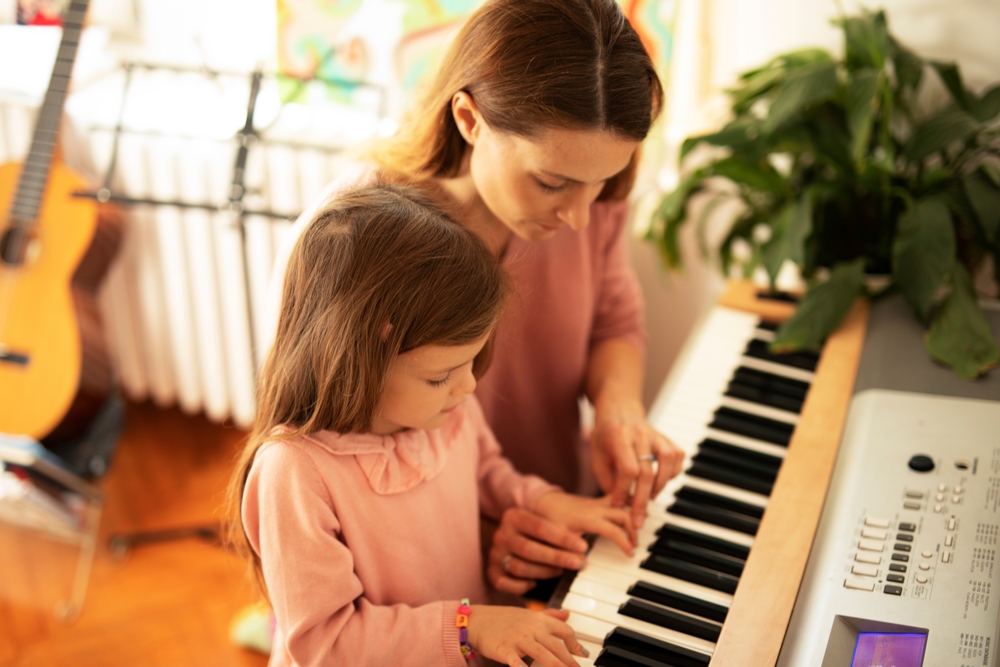
Handing your child an instrument is not just about adding another extracurricular activity to their schedule it’s about planting a seed that can grow into focus, confidence, and creativity for life. But like any seed, it needs the right environment to thrive. Parents play a pivotal role in shaping this journey.
Follow the spark, not the pressure.
The best instrument for your child is the one that excites them. Whether it’s a piano, a guitar, a trumpet, or even drums, let them choose the sound that stirs something inside. Passion fuels persistence far more than pressure ever will.
Prioritize consistency over perfection.
Studies show that even 20 to 30 minutes of focused daily practice can change the brain’s wiring. Encourage your child to approach practice like brushing their teeth small, consistent efforts that add up over time. The goal isn’t flawless performance, but steady progress.
Celebrate growth, not comparison.
Clapping for the one extra note they mastered today matters more than pointing out what they still can’t play. Shift the focus from competition to personal growth: What can you do today that you couldn’t do yesterday? This builds self-esteem rooted in effort rather than external validation.
Make music part of daily life.
Beyond structured lessons, surround your child with music at home. Play different genres, sing together, or dance in the living room. These moments make music feel less like homework and more like joy something to look forward to instead of dread.
Encourage performance as a gift.
When children play for family gatherings or school recitals, help them see it not as a test, but as a way to share something beautiful with others. This shift in perspective nurtures confidence, empathy, and a sense of contribution.
Remember: it’s never too late.
If you didn’t start your child young or if you want to begin yourself it’s still possible to reap the benefits. Neuroscience shows that learning music at any age strengthens focus, resilience, and emotional well-being. In fact, playing alongside your child could become one of the most rewarding journeys you share.
By supporting your child’s relationship with music, you’re not just teaching them notes. You’re teaching them how to show up for themselves, how to stay with a challenge, and how to turn effort into joy. And those are lessons that will echo long after the music fades.
A Lifelong Symphony of Growth
At the end of the day, music is more than a hobby, more than a skill. It is a language of the brain, the heart, and the soul one that teaches children to focus when distracted, to rise when discouraged, and to shine with confidence when the world asks them to step forward.
Every scale they practice, every chord they struggle through, every song they eventually master is more than sound it is the shaping of character, the wiring of resilience, and the awakening of creativity. The gift of music is not just that it makes children smarter. It makes them stronger, more empathetic, more alive.
So when you hand a child an instrument, remember: you’re not just giving them something to play. You’re giving them a lifelong companion, a tool for expression, and a way to discover their best self. The music may begin in your living room, but its echoes will carry into every classroom, every workplace, every relationship, and every stage of their life.
The choice is simple yet profound: do we raise children who can recite facts, or children who can compose their own future? Music has the power to do both and so much more.
Loading...

